
The Ultimate Guide to Caring for Your Dog
Dogs are amazing companions and provide us with unconditional love. They’re also a lot of work, which is why The Beacon Dog Academy is here to help. We’re the ultimate guide to dog care, from choosing the right dog for your family to teaching them how to behave.
We want every dog owner out there to have a well-behaved pup that makes everyone happy. That’s why we offer advice on everything from care to potty training to training to dealing with behavioral issues. In this article, we'll go over all of the basics of dog care so that you can be fully prepared for your new addition to the family.
The Basics of Dog Care
Before your pup even arrives, you should be prepared for the basics of dog care. This includes everything from choosing the right breed that matches your lifestyle to setting up your home to accommodate your new furry friend to training yourself to become a leader.
Choosing a Dog Breed
When it comes to choosing a dog, there are many factors to consider. Size, energy level, and temperament are all important considerations. You'll also need to decide whether you want a purebred or a mixed breed.
There are so many breeds of dogs available, it can be difficult to choose just one. When choosing a dog breed, it's important to consider your lifestyle and what you're looking for in a pet. Do you live in a small apartment and need a low-maintenance dog? Or are you looking for a furry running partner?
Once you decide on the breed you want, you'll need to look for a reputable breeder. Be sure to interview the breeder and ask lots of questions about the dog's health, temperament, and upbringing. You should also get a copy of the pup's health record to take to your veterinarian.
When it comes time to meet the puppies, it's important you understand how to check a puppy's temperament. This can be done by observing how the pup plays with his siblings and other animals. A confident and relaxed puppy is likely to be a good pet.
Preparing Your Home
Once you've chosen your dog, it's time to set up your home. This means creating a safe and comfortable space for your pup to sleep, eat, and play. You'll also need to provide plenty of exercise and stimulation.
If you're like most people, you probably weren't expecting to get a dog when you moved into your current home. If this is the case, you'll need to make a few adjustments before your pup arrives. First and foremost, you'll need to get pet gates to keep your dog out of certain areas of the house.
You'll also need to puppy-proof your home. This means removing any toxic plants or chemicals from the environment and putting away any small objects that your pup could choke on. You may also want to consider investing in a crate or dog bed.
Bringing Your Dog Home
Now that you've chosen your perfect dog and after thorough research, you have puppy-proofed your home, it's time to bring him home! When bringing your new dog home, there are some things you'll need to do to make sure his transition is as smooth as possible.
The first thing you'll want to do is set up a designated spot for your dog's food and water bowls. You should also put his bed in this spot so he can start to feel at home. If you're crate training, you will begin the process of getting him accustomed to his new surroundings.
Be sure to establish a regular feeding schedule and take him outside immediately after he eats or drinks. This will help him get used to going potty in the right spot. You'll also want to begin obedience training as soon as possible. This will help establish you as the leader and make your life much easier down the road.
Training Yourself to Become a Leader
One of the most important aspects of dog care is training yourself to become a leader. Dogs are pack animals and need a leader to show them what's expected of them. This includes teaching them basic commands such as sit, stay, down, come, and heel.
It's important to start training your dog early on. This will help create a strong bond between you and your pup and make training much easier down the road. Be consistent with your commands and rewards and be sure to provide plenty of positive reinforcement.
Training Your Dog to Behave Around Other Animals
If you have other animals in your home, it's important to train your dog on how to behave around them. This will help prevent any scuffles and make life much easier for all of you. Start by introducing your dog to the other animals one at a time. Be sure to reward him for good behavior and provide plenty of positive reinforcement.
If you have a cat, it's important to train your dog not to chase or harass her. This can be done by teaching him the "leave it" command. Be sure to start this training early on and don't leave him unsupervised around the cat until he has learned how to behave.
Essential Dog Care Items
Some of the items on this list are just common sense, but it's always a good idea to have a reminder.
- Food and water bowls - You'll need a bowl for each.
- Collar and leash - You'll need these to take your pup for walks.
- Prong Collar - A prong collar can be a helpful tool in training.
- Food - Your pup will need quality dog food to stay healthy.
- High-value treats (chicken, hot dogs, cheese, etc.) - Positive reinforcement is key in training, so you'll need plenty of treats on hand.
- Treat pouch - This will keep your treats handy while training.
- Carrier - If you need to take your dog with you on trips, you'll need a carrier.
- Puppy pads - If you're potty training, you'll need these.
- Pooper scooper and baggies - You'll need these to clean up after your pup.
- Pet gates - Keep your pup out of certain areas of the house with these.
- Crate - A crate is a great way to train your dog not to pee in the house.
- Dog bed - Your pup will need a place to sleep.
- Grooming supplies (brush, shampoo, toothbrush, etc.) - Keep your pup looking and feeling his best.
- Clipper blades - Keep these on hand if you plan on clipping your pup's hair.
- Nail clippers - You'll need these to clip your pup's nails.
- Styptic powder - This can help stop bleeding if you clip your pup's nails too short.
- Dog toys - A variety of toys will keep your pup entertained.
- Clicker - A clicker can be a helpful tool in training.
- ID tag and microchip - Make sure your pup has proper identification in case he gets lost.
- Emergency contact information - In case of an emergency, you'll need the contact information for your vet and/or pet sitter.
As you can see, there's a lot to think about when it comes to dog care. But, being prepared will make life much easier for both you and your pup.
Finding a Vet
One of the most important things you'll need to do is find a good veterinarian. Ask your friends, family, and neighbors for referrals. Once you've narrowed it down, set up appointments for meet and greets with the vets. This will help you decide which one is right for you and your pup.
Your vet will be responsible for your pup's health and well-being, so it's important to find one you can trust. Be sure to ask plenty of questions and get a feel for the vet's personality. You should also be prepared to provide your vet with information about your pup's medical history.
Vaccinations
It's important to make sure your pup is up-to-date on his vaccinations. Puppies should receive a series of vaccinations starting at 8 weeks old and continuing until they are 16 weeks old. Thereafter, your pup will need to get vaccinated once a year. Your vet can help you decide which vaccinations are right for your pup.
Checkups
It's important to take your pup for regular checkups. Your vet will be able to perform routine examinations and tests, as well as provide preventative care. This is a good time to ask any questions you may have about your pup's health.
Signs of Illness
If you think your pup may be sick, it's important to take him to the vet right away. Some of the signs of illness include vomiting, diarrhea, lethargy, loss of appetite, and swollen joints.
Emergency Situations
In the event of an emergency, it's important to have the information for your vet and/or pet sitter handy. Keep this information in a place where you can easily access it. Hopefully, you'll never need to use it, but it's always good to be prepared.
Elderly Dog Care
As your pup ages, he will require different types of care. Some things to keep in mind include:
- Senior dogs should be fed a diet specifically for older dogs.
- Regular vet checkups are important.
- Your pup may need more rest and should not be allowed to run around as much.
- Be careful when choosing toys – avoid anything that could be hazardous.
- Keep a close eye on your pup's health, especially changes in behavior or eating habits.
- They may need more frequent bathroom breaks.
- They may be more prone to developing health problems.
- They may require more grooming.
- Their activity level may decline.
- They may require more one-on-one attention.
With a little extra TLC, your elderly pup will enjoy a happy and comfortable life. It's important to talk to your vet about the specific needs of elderly dogs. He can provide you with more information and tips on how to best care for your pup as he gets older.
Disabled Dog Care
Your pup's lifestyle will change dramatically after becoming disabled and he will require a different type of care. Some things to keep in mind include:
- He may need help getting up and down.
- He may have a harder time regulating his body temperature.
- He may require a softer bed or mattress.
- He may need help getting around.
- He may not be able to eat regular dog food and will need a special diet.
- He will need more frequent vet checkups.
- He may need assistance with bathroom breaks.
- He may require more frequent vet visits.
- He may require a wheelchair or other mobility device.
It's important to talk to your vet about the specific needs of disabled dogs. He can provide you with more information and tips on how to best care for your pup.
Small Dog Care
If you have a small dog, there are a few things you need to keep in mind:
- Small dogs require more frequent grooming.
- They may be more prone to developing health problems.
- They may require more one-on-one attention.
- Their activity level may be lower.
- They may require a different type of food.
Small dogs do best when they have a designated space in the home where they can relax and feel safe. It's important to talk to your vet about the specific needs of small dogs. He can provide you with more information and tips on how to best care for your pup.
Big Dog Care
If you have a big dog, there are a few things you need to keep in mind:
- Big dogs require more frequent walks.
- They may be more prone to developing health problems.
- They may require more one-on-one attention.
- Their activity level may be higher.
- They may require a different type of food.
Big dogs do best when they have a designated space in the home where they can relax and feel safe. It's important to talk to your vet about the specific needs of big dogs. He can provide you with more information and tips on how to best care for your pup.
The Dangers of Not Providing Proper Care
Not providing proper care for your pup can have serious consequences. There are a few dangers and pitfalls of poor dog care that you should be aware of:
- Poorly groomed dogs may become matted and suffer from skin problems.
- Untreated health problems can worsen and may even lead to death.
- Dogs that are not exercised enough may become obese and develop health problems.
- Unsocialized dogs may become aggressive or shy and may be difficult to rehome.
- Dogs that are not trained may cause destruction in the home and may be difficult to housetrain.
It's important to be aware of the dangers and pitfalls of poor dog care so that you can avoid them. By providing your dog with the proper care, you can help ensure his health and well-being.
Summing It Up
There really is a lot that goes into the proper care of a dog, and it's important to be aware of all of it. By providing your pup with the basics – food, water, shelter, exercise, and love – you will help him lead a happy and healthy life. And by talking to your vet about your dog's specific needs, you can ensure that he is getting the best possible care.
Do you want to have a well-behaved dog? The Beacon Dog Academy is the perfect place to start. We offer a variety of courses that will help train your dog in basic obedience, manners, and socialization skills. Our experienced trainer, Daniel, uses positive reinforcement methods so your dog can learn while having fun.
You’ll see amazing results – we guarantee it! In no time at all, you’ll have a dog that listens attentively and responds obediently to your commands. And our training tips will help you maintain those behaviors for years to come. Sign up for our course today and start enjoying life with a well-behaved dog!
Useful Ressources
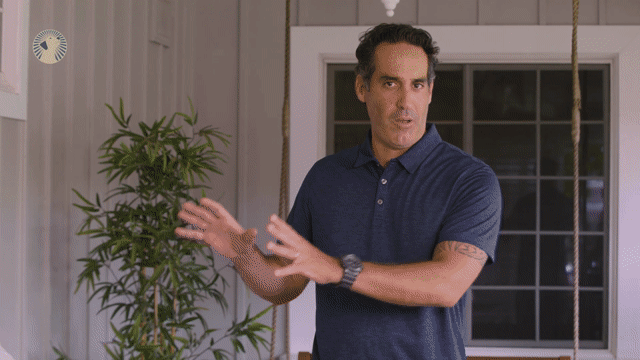
Introducing a New Dog to Your Life
Introducing a new dog into your household can be stressful. Learn how to set the right framework for success before, during, and after introducing your pup!
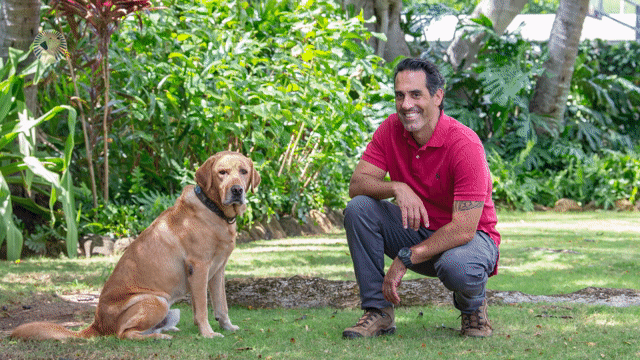
Introduction to The Beacon Dog Training Course
Looking for a practical, easy-to-understand online dog training course that will translate into positive results? Try Daniel's step-by-step approach.
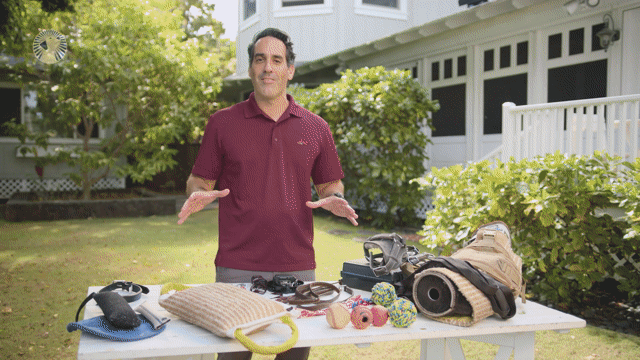
Key Training Tools and Gear
As a dog trainer, you need the right tools to make training your dog easier. Learn how to choose the best dog training tools and gear for training sessions.
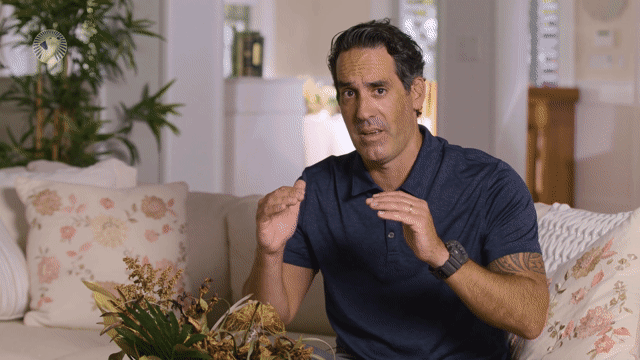
Problem-Solving Theories
Learn how to correct dog behavior problems (including food possessiveness and aggression) in order to make your life with a dog so much easier.
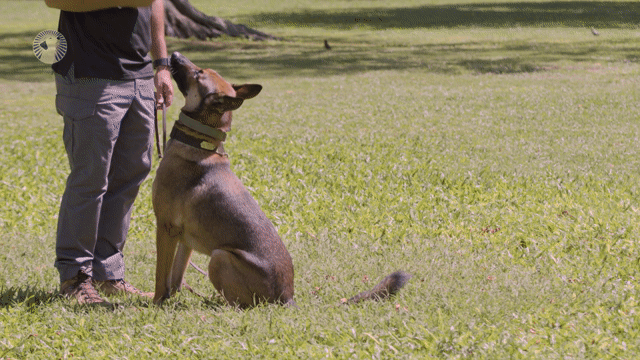
The Primal Power of Food
How to motivate your dog using food. Learn how to use food throughout your dog’s life to get the best out of them. Become an expert in motivating your dogs!

Popular Dog Training Methods
There are many dog training methods, each technique having valuable use in different scenarios. So, how do you choose the right training program for your dog?

How to Prep for Your Dog's Arrival
Your new furry friend will soon join your family! But before you can start enjoying all of the wags and cuddles, there’s some important work to do.

How Do You Check for a Puppy's Temperament?
As puppies grow into dogs, many owners are surprised when their once gentle puppy becomes a barker or even a biter. It is possible to prevent these behaviors by testing for temperament early on.

How to Puppy-Proof Your Home

Dog Care Basics: Bathing & Grooming
